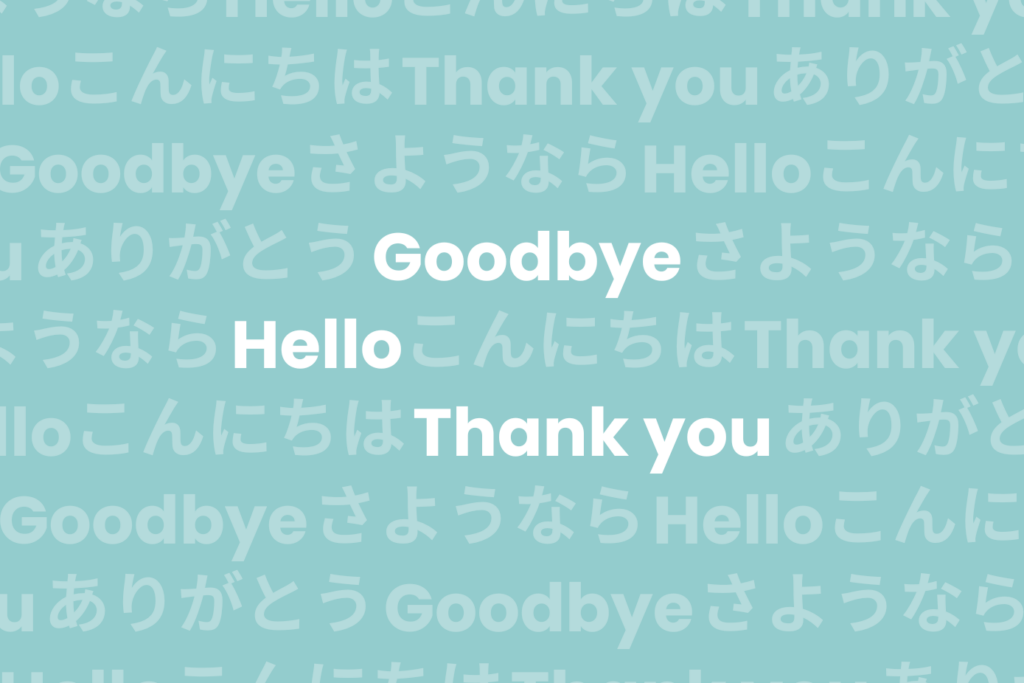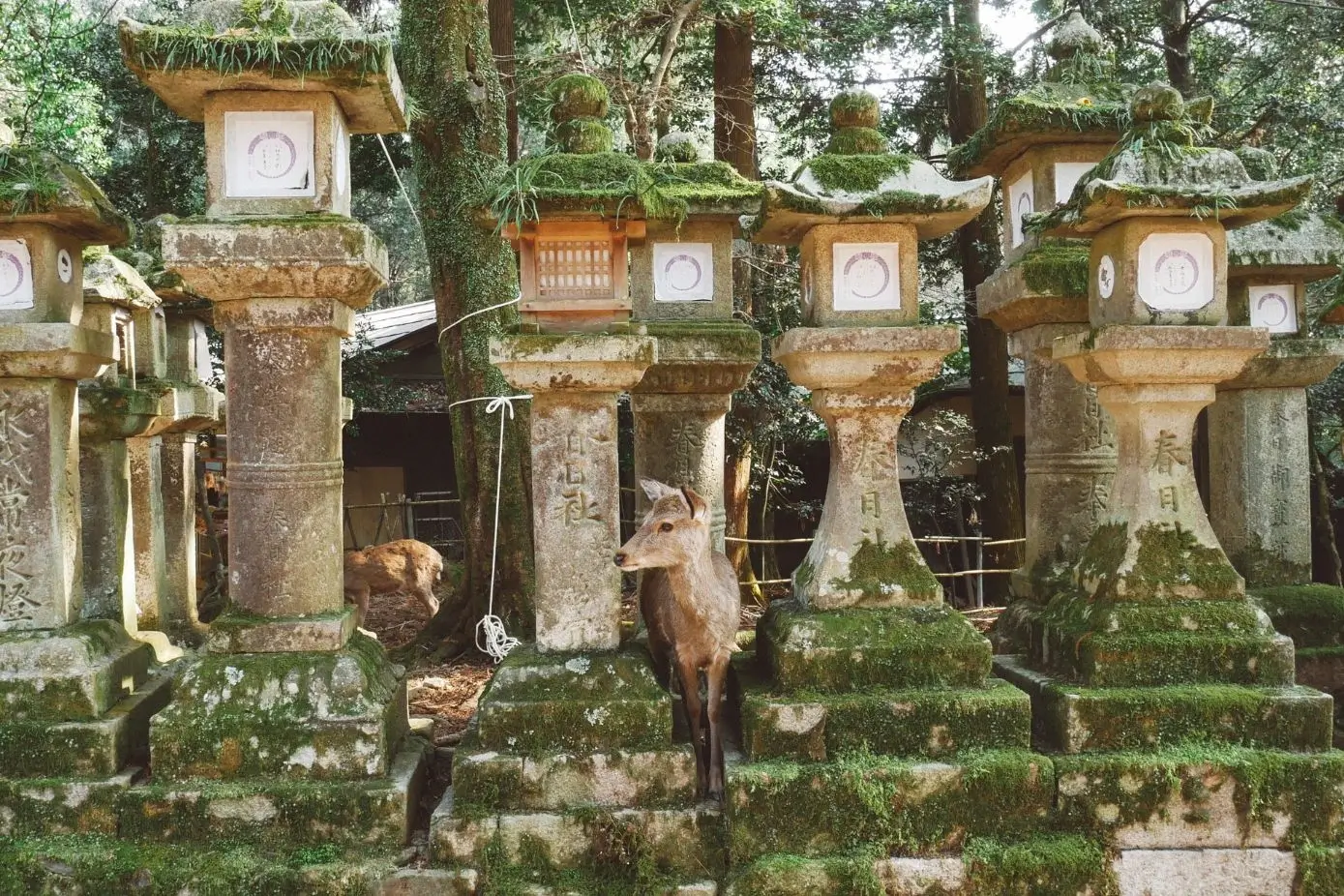Embarking on a journey through Japan is an exciting adventure, and having a grasp of basic Japanese phrases for travel can immensely enrich your experience. Whether you’re navigating the bustling streets of Tokyo, exploring the historical depths of Kyoto, or relaxing in a serene onsen, these phrases will help you communicate effectively and connect more deeply with locals.
Basic Japanese Phrases for Travel
- Everyday Phrases
- Public Transportation Phrases
- Dining Out Phrases
- Shopping and Bargaining Phrases
- Asking for Help
- Time-Related Phrases
But First, Do I Need To Speak Fluent Japanese To Travel Around Japan?
No, but knowing basic phrases can greatly enhance your experience. While many Japanese people understand some English, especially in tourist areas, using simple Japanese phrases can help you navigate the country more effectively.
Everyday Phrases
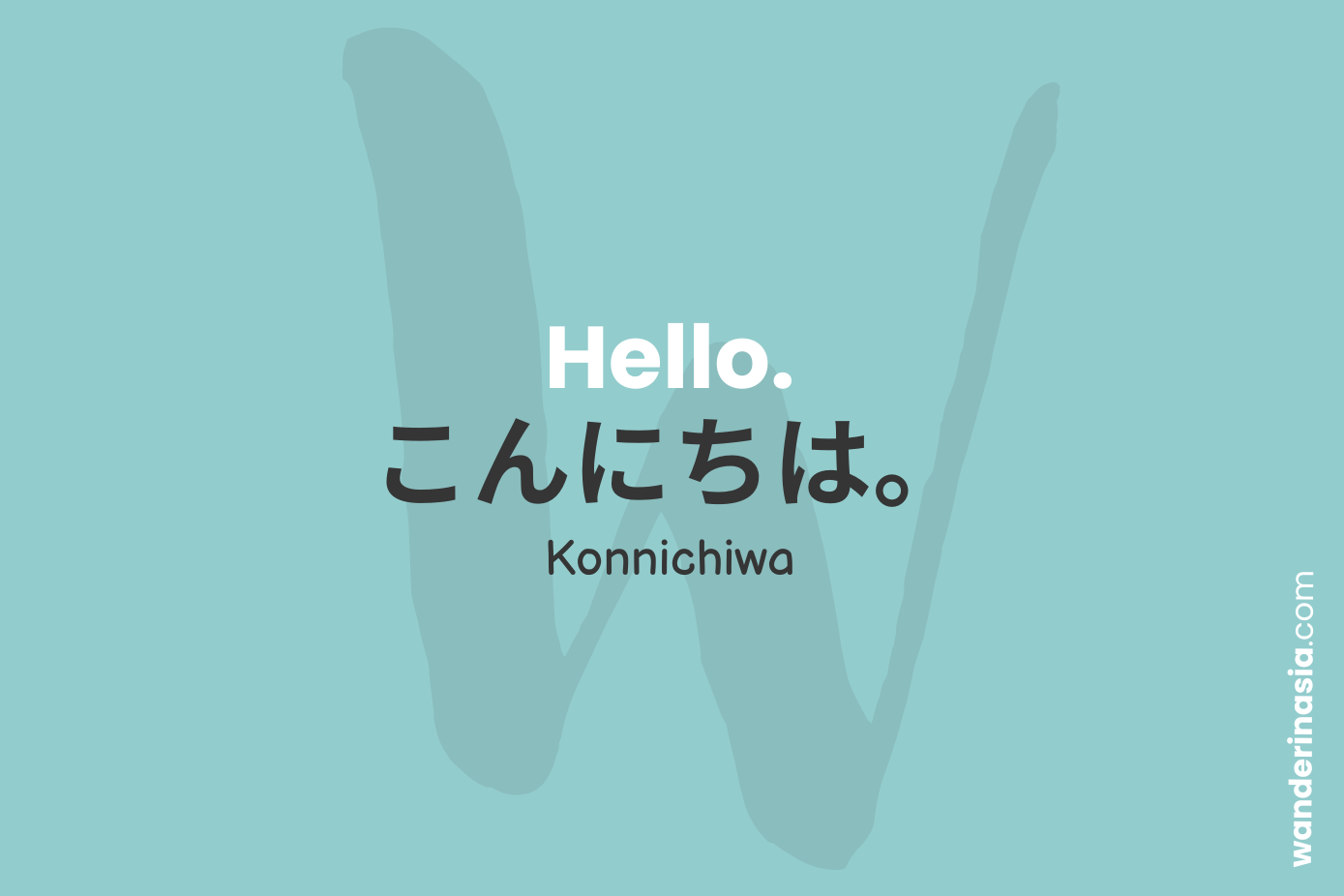
Being polite in Japan goes a long way. These basic phrases are essential for everyday interactions:
| English | Japanese | Pronunciation |
|---|---|---|
| Hello | こんにちは | Konnichiwa |
| Thank you | ありがとう | Arigatou |
| Yes | はい | Hai |
| No | いいえ | Iie |
| Please | お願いします | Onegaishimasu |
| Excuse me / Sorry | すみません | Sumimasen |
| Goodbye | さようなら | Sayounara |
Navigating Public Transportation
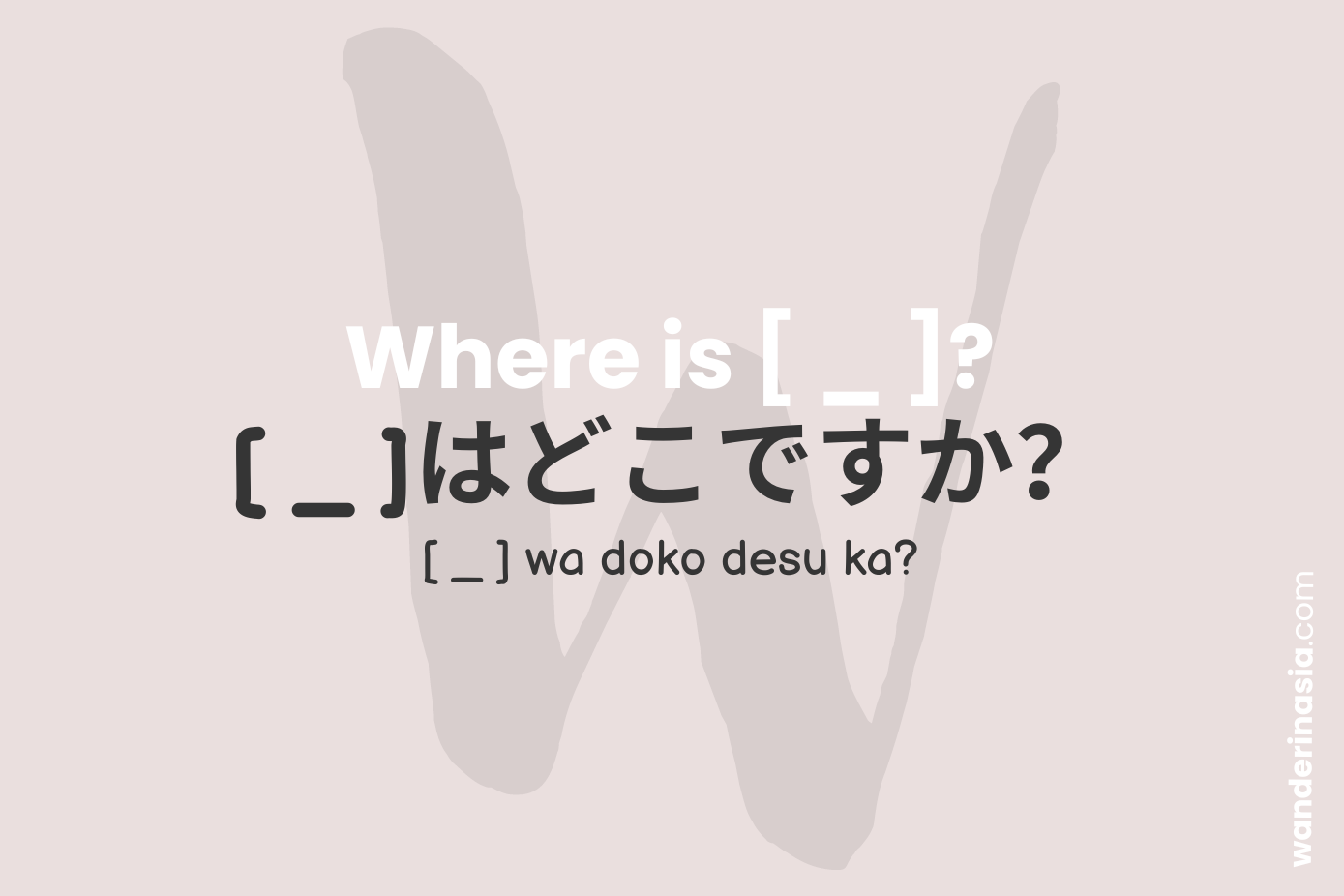
Getting around Japan is a breeze with its efficient public transportation. Here’s how to navigate it with some basic Japanese phrases that can make your journey smoother when taking trains, buses, or taxis:
Trains and Shinkansen
Japan’s rail system, including the world-famous Shinkansen or bullet trains, is the most efficient way to travel between cities and regions. For instance, if you’re planning to visit Kyoto’s historic sites from Tokyo, the Shinkansen is your best bet.
| English | Japanese | Pronunciation |
|---|---|---|
| Which platform for the Shinkansen to Kyoto? | 京都への新幹線はどのホームですか? | Kyoto e no shinkansen wa dono hoomu desu ka? |
| What time is the next train? | 次の電車は何時ですか? | Tsugi no densha wa nanji desu ka? |
| Is this seat taken? | この席は空いていますか? | Kono seki wa aite imasu ka? |
City Buses and Streetcars
In cities, buses and streetcars can get you to places not directly accessible by trains. They are particularly useful in cities like Hiroshima or for short trips within a city.
| English | Japanese | Pronunciation |
|---|---|---|
| Does this bus go to [destination]? | このバスは[destination]に行きますか? | Kono basu wa [destination] ni ikimasu ka? |
| Please stop here. | ここで止めてください。 | Koko de tomete kudasai. |
| How much is the fare to [destination]? | [destination]までの運賃はいくらですか? | [Destination] made no unchin wa ikura desu ka? |
Taxis
Taxis are a convenient option for direct travel to your destination, especially when public transport is not available or during late-night hours.
| English | Japanese | Pronunciation |
|---|---|---|
| Please take me to [destination]. | [destination]までお願いします。 | [Destination] made onegaishimasu. |
| How long will it take to [destination]? | [destination]までどのくらいかかりますか? | [Destination] made dono kurai kakarimasu ka? |
| Please wait here. | ここで待っててください。 | Koko de matte te kudasai. |
Subways
In major cities like Tokyo and Osaka, subways are the quickest way to get around. They are frequent, fast, and cover most parts of the city.
| English | Japanese | Pronunciation |
|---|---|---|
| Which line goes to [destination]? | [destination]に行くにはどの線ですか? | [Destination] ni iku ni wa dono sen desu ka? |
| Where can I buy a ticket? | 切符はどこで買えますか? | Kippu wa doko de kaemasu ka? |
| Which way to the [line name] line? | [Line name]線はどちらですか? | [Line name] sen wa dochira desu ka? |
Basic Japanese Phrases For Dining Out
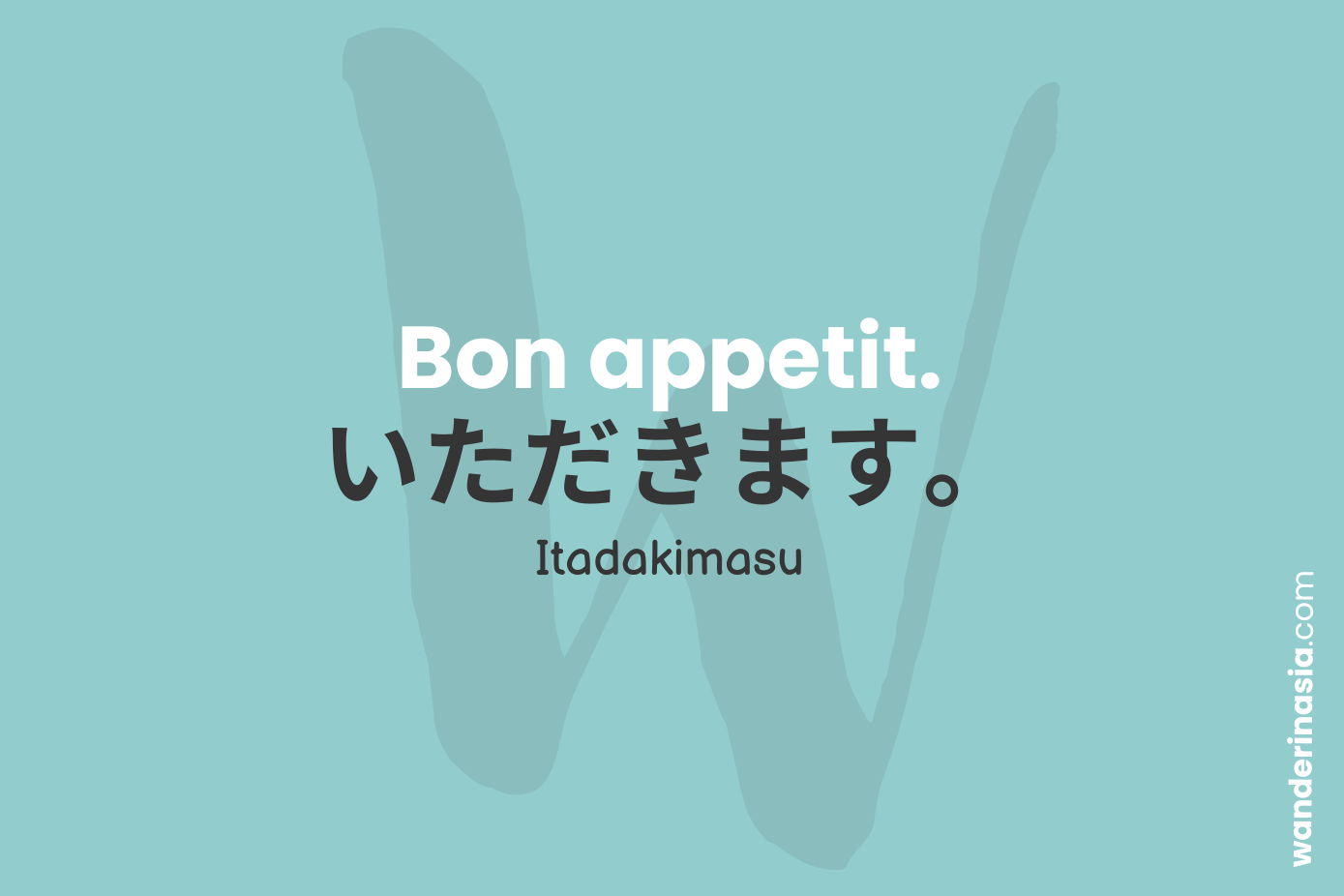
Experiencing Japan’s culinary delights is a highlight of any visit. Whether you’re sampling sushi in Tokyo, trying takoyaki in Osaka, or enjoying a traditional kaiseki meal in Kyoto, these Japanese phrases will enhance your dining experience:
Ordering and Requests
When visiting restaurants, from Ikebukuro’s eateries to Kyoto’s traditional dining, these phrases are helpful:
| English | Japanese | Pronunciation |
|---|---|---|
| Menu, please. | メニューをください。 | Menyuu o kudasai. |
| What do you recommend? | おすすめは何ですか? | Osusume wa nani desu ka? |
| I would like this, please. | これをお願いします。 | Kore o onegaishimasu. |
| Do you have vegetarian options? | ベジタリアン用の料理はありますか? | Bejitarian-you no ryouri wa arimasu ka? |
| Can I have the bill, please? | お会計をお願いします。 | Okaikei o onegaishimasu. |
| Is there an English menu? | 英語のメニューはありますか? | Eigo no menyuu wa arimasu ka? |
Dietary Restrictions
If you have specific dietary needs or preferences, such as visiting Tokyo’s vegan restaurants, use these phrases:
| English | Japanese | Pronunciation |
|---|---|---|
| I am allergic to [allergen]. | [Allergen]にアレルギーがあります。 | [Allergen] ni arerugii ga arimasu. |
| I don’t eat [food]. | [Food]は食べません。 | [Food] wa tabemasen. |
| Does this contain [ingredient]? | これには[ingredient]が含まれていますか? | Kore ni wa [ingredient] ga fukumarete imasu ka? |
Compliments and Etiquette
Expressing appreciation or compliments can enhance the dining experience:
| English | Japanese | Pronunciation |
|---|---|---|
| It’s delicious! | とても美味しかったです、ありがとう。 | Totemo oishikatta desu, arigatou. |
| Cheers! (Before drinking) | 乾杯! | Kanpai! |
| I’m full, thank you. | お腹いっぱいです、ありがとう。 | Onaka ippai desu, arigatou. |
Shopping and Bargaining
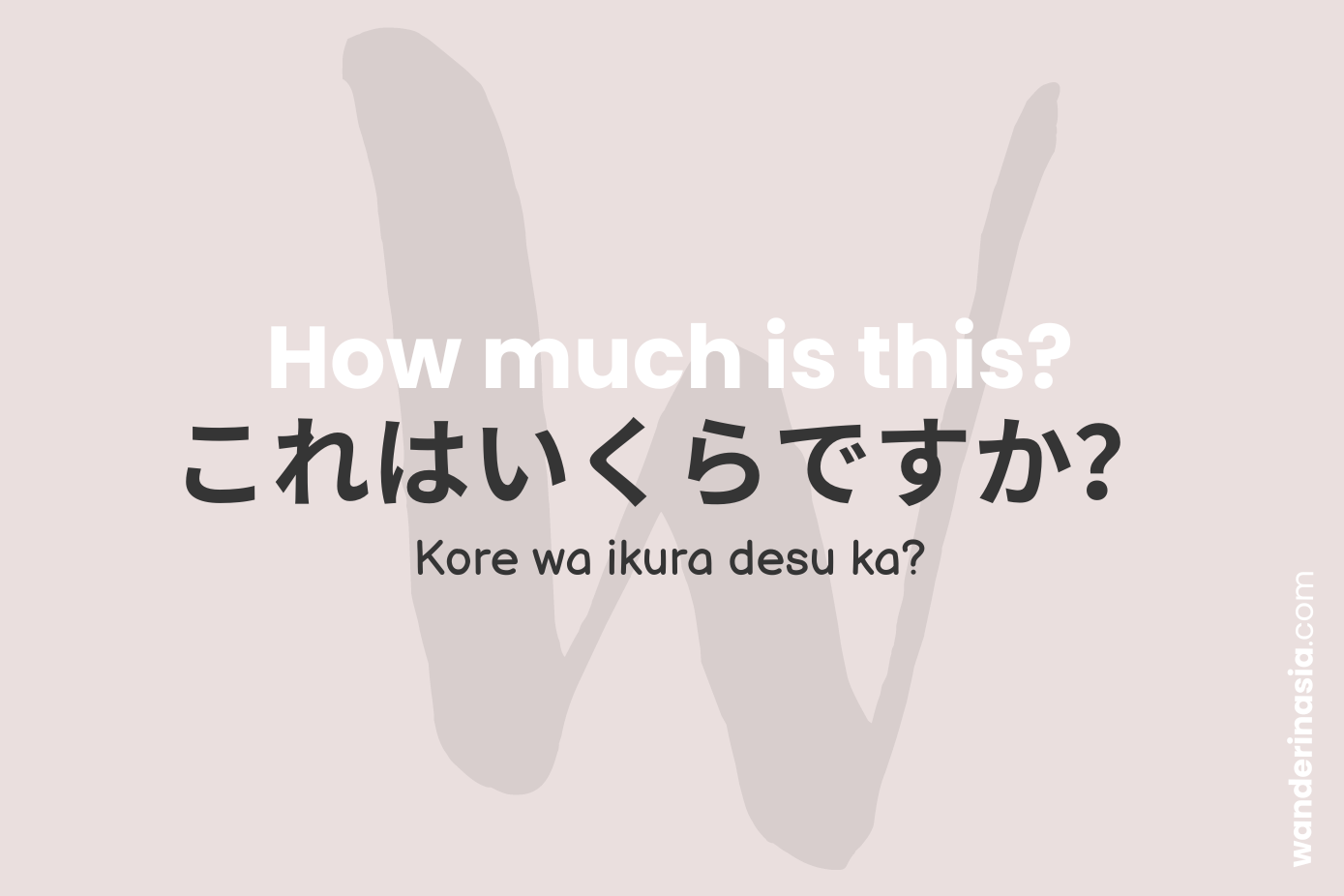
Shopping in Japan is an experience filled with variety, from high-tech gadgets in Akihabara to fashionable finds in Harajuku. While bargaining isn’t common in most shops and malls, these phrases can be useful, especially in markets or smaller stores where prices aren’t fixed:
Basic Shopping Phrases
When browsing through areas like Shinjuku or Asakusa, these phrases can help:
| English | Japanese | Pronunciation |
|---|---|---|
| Do you accept credit cards? | クレジットカードは使えますか? | Kurejitto kaado wa tsukaemasu ka? |
| Can I try this on? | これを試着してもいいですか? | Kore o shichaku shite mo ii desu ka? |
| Do you have this in a different size/color? | これの別のサイズ/色はありますか? | Kore no betsu no saizu/iro wa arimasu ka? |
After Purchase
After making a purchase, especially in places like the top shopping areas in Tokyo, these phrases might come in handy:
| English | Japanese | Pronunciation |
|---|---|---|
| Can I have a receipt, please? | レシートをもらえますか? | Reshiito o moraemasu ka? |
| Do you offer tax-free shopping? | 免税販売はありますか? | Menzei hanbai wa arimasu ka? |
| I’m just browsing, thank you. | 見ているだけです、ありがとう。 | Mite iru dake desu, arigatou. |
Basic Japanese Phrases For Asking for Help
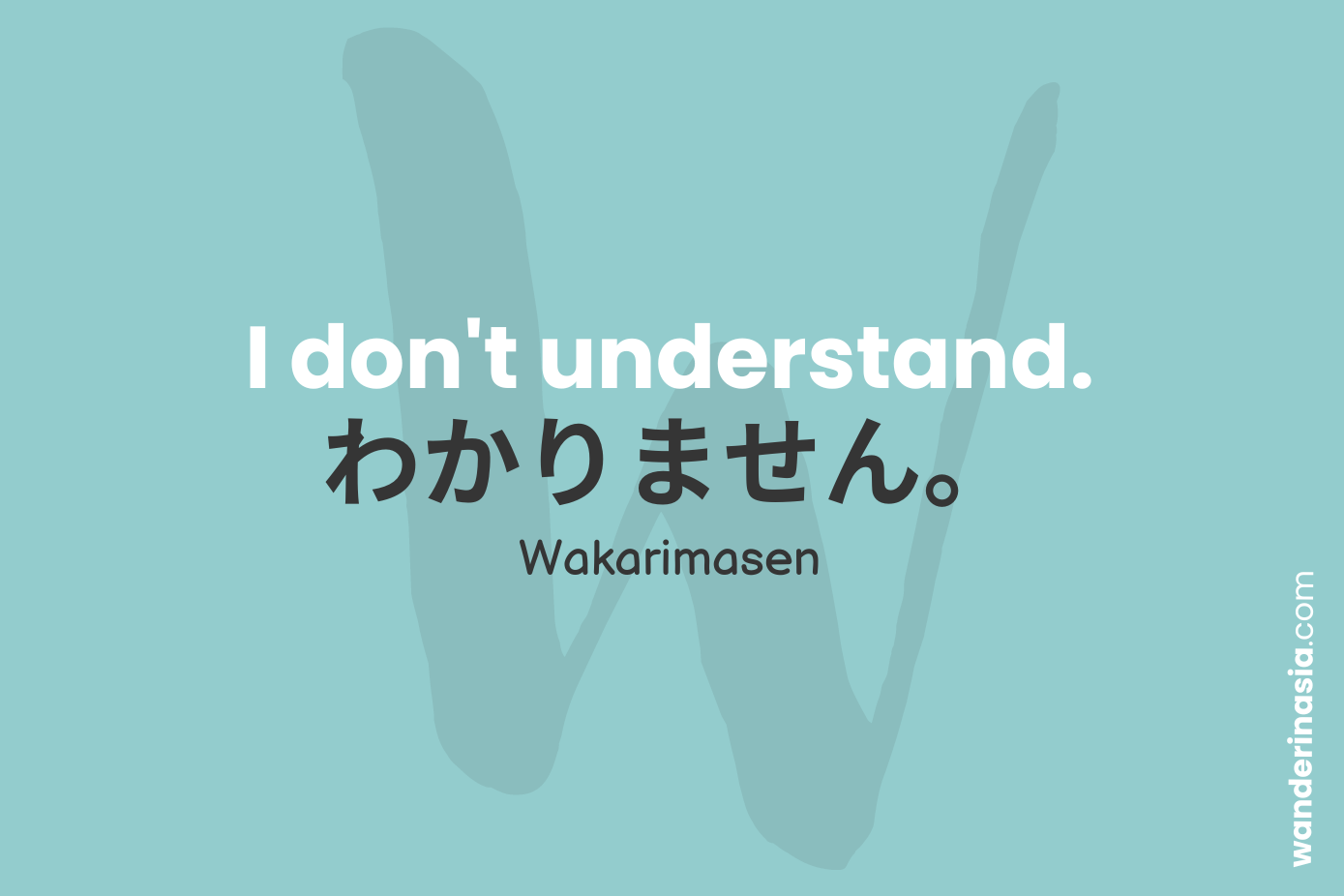
While exploring Japan, from the bustling streets of Tokyo to the historic alleys of Kyoto, you may find yourself in need of assistance. Knowing how to ask for help in Japanese is not only practical but also shows respect for the local culture. Here are some essential phrases to use when seeking help:
Basic Help Phrases
These phrases are useful in various situations, whether you’re lost or need assistance:
| English | Japanese | Pronunciation |
|---|---|---|
| Help! | 助けて! | Tasukete! |
| I’m lost. | 道に迷いました。 | Michi ni mayoimashita. |
| Can you help me? | 手伝ってもらえますか? | Tetsudatte moraemasu ka? |
| I don’t understand. | わかりません。 | Wakarimasen. |
When Feeling Unwell
If you’re feeling unwell or have a medical emergency, use these phrases:
| English | Japanese | Pronunciation |
|---|---|---|
| I need a doctor. | 医者が必要です。 | Isha ga hitsuyou desu. |
| Is there a pharmacy nearby? | 近くに薬局はありますか? | Chikaku ni yakkyoku wa arimasu ka? |
| I feel sick. | 気分が悪いです。 | Kibun ga warui desu. |
Language Difficulties
If you’re having trouble communicating, these phrases might be helpful:
| English | Japanese | Pronunciation |
|---|---|---|
| Do you speak English? | 英語を話せますか? | Eigo ga hanasemasu ka? |
| I don’t speak Japanese well. | 日本語があまり話せません。 | Nihongo ga amari hanasemasen. |
| Please speak slowly. | ゆっくり話してください。 | Yukkuri hanashite kudasai. |
Time-Related Phrases for Travelers in Japan
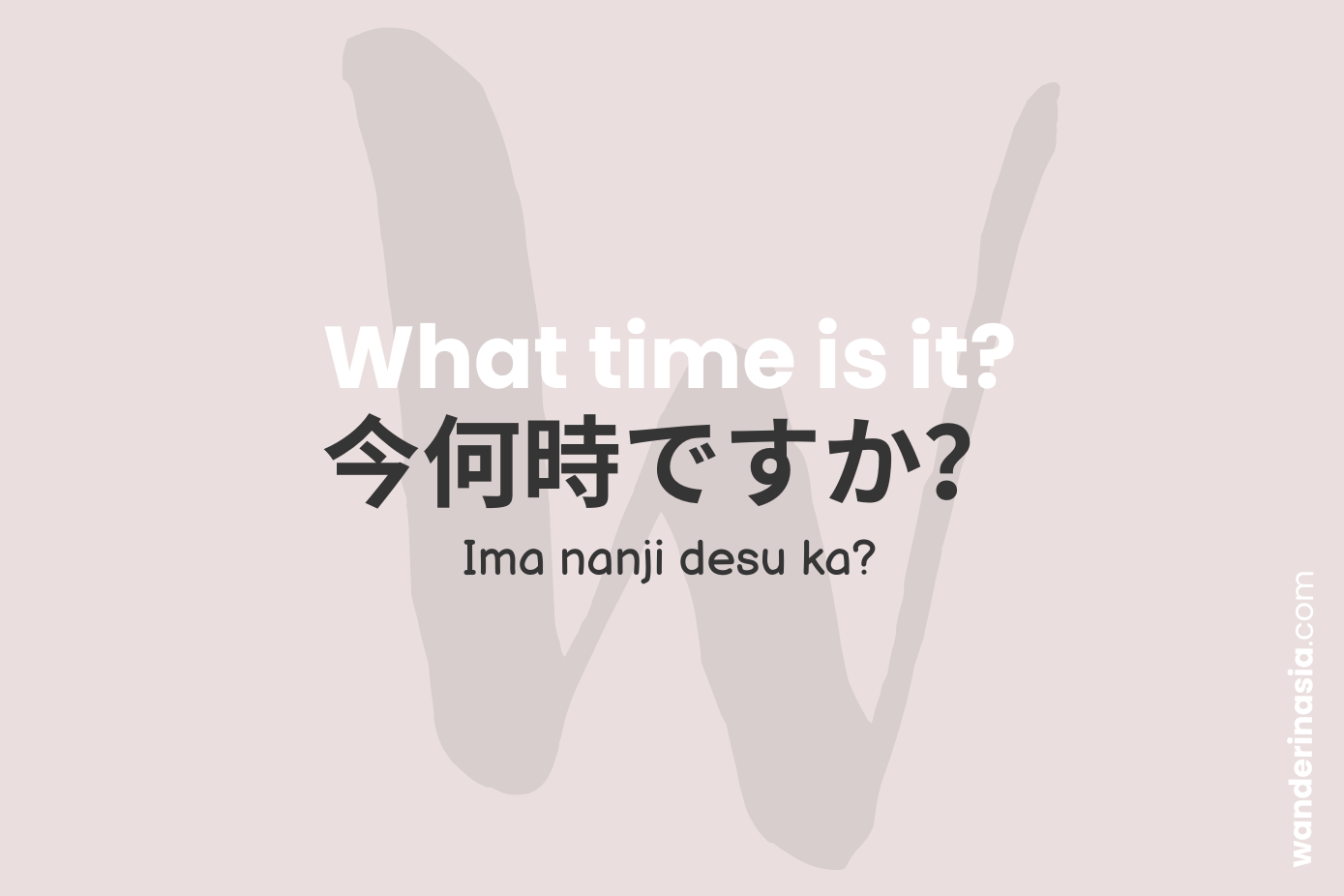
Understanding and using time-related phrases in Japanese can be incredibly helpful, especially when planning your itinerary or asking for information. Here’s a quick guide to some essential time-related phrases:
| English | Japanese | Pronunciation |
|---|---|---|
| What time is it? | 今何時ですか? | Ima nanji desu ka? |
| Today | 今日 | Kyou |
| Tomorrow | 明日 | Ashita |
| Yesterday | 昨日 | Kinou |
| Morning | 朝 | Asa |
| Afternoon | 午後 | Gogo |
| Evening | 夕方 | Yuugata |
| Night | 夜 | Yoru |
Asking for Opening and Closing Times
Knowing the opening and closing times is crucial, especially when visiting attractions like Ueno’s best sites:
| English | Japanese | Pronunciation |
|---|---|---|
| What time do you open? | 何時に開きますか? | Nanji ni akimasu ka? |
| What time do you close? | 何時に閉まりますか? | Nanji ni shimarimasu ka? |
Discussing Duration
If you’re planning day trips or need to know the duration of a journey, such as from Kyoto to surrounding areas (best day trips from Kyoto), these phrases will be useful:
| English | Japanese | Pronunciation |
|---|---|---|
| How long does it take? | どのくらい時間がかかりますか? | Dono kurai jikan ga kakarimasu ka? |
| It takes about [duration]. | [Duration]くらいかかります。 | [Duration] kurai kakarimasu. |
Final Thoughts
Knowing these basic Japanese phrases will not only ease your travel but also show respect for the local culture. Whether you’re exploring the best onsens in Japan or the streets of Kyoto, a little bit of language goes a long way. So, pack these phrases along with your essentials and get ready for an unforgettable journey in Japan!
FAQ
Yes, apps like Google Translate can be handy for real-time translation and learning new phrases.
No, but it’s best to avoid being too direct or confrontational. The Japanese language often relies on context and subtlety. Being polite and indirect is generally more appreciated.
Yes, gestures are often used and can be quite effective in communicating basic needs or questions, especially when language barriers exist.

